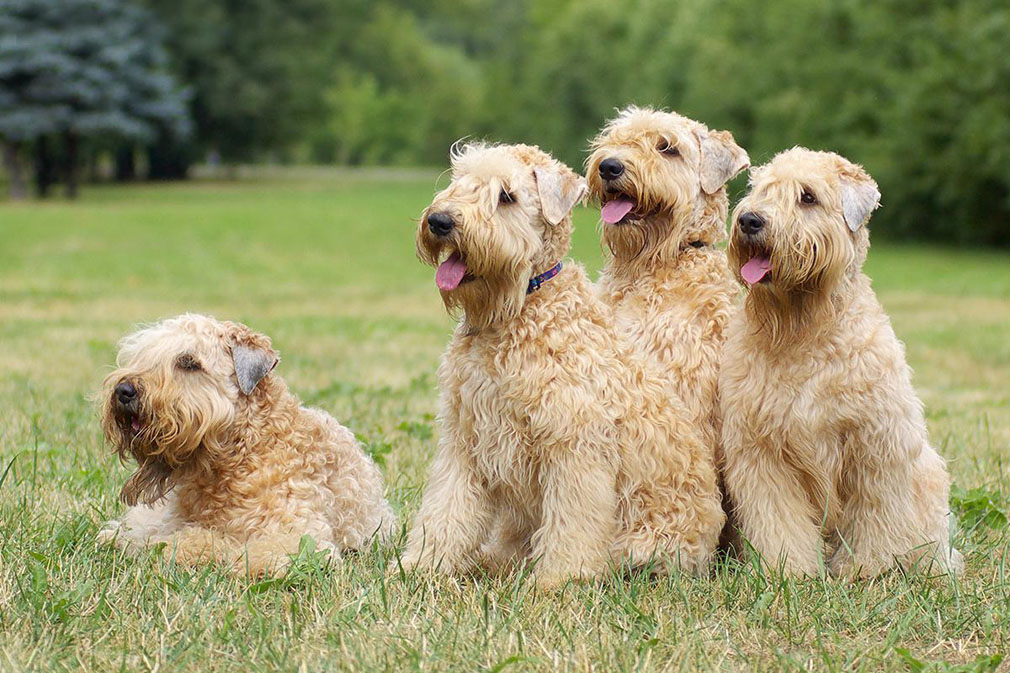Wheaten Terrier


 Puppy
Puppy
 Fully Grown
Fully Grown
Wheaten Terriers love all people, and they don't understand why anyone they meet would not want to be jumped on and licked. They will try anything to get your attention if you ignore them, as they assume you just didn't notice them!
Wheatens don't do well with being left home alone for long periods of time and anybody coming to the door will get welcomed with loud barks. Your garden will need to be well fenced so that they don't get out on adventures when you are not home.
Wheaten Terriers are less rowdy when playing with other dogs than their other terrier cousins. But at heart they are still terriers and can be stubborn and not very obedient. Selective hearing is quite common with this breed, but when you get the treat bag out they will suddenly be all ears again!
It is known that Wheatens like to wipe their beardy faces clean on couches...so if you are a clean freak then this breed might not be for you. The bonus - they don't shed much at all, but do require combing, preferably on a daily basis.
| Weight: | 14-20 kg |
| Health risk: | Low |
| Life expectancy: | 12-15 years |
| Coat: | Medium |
| Grooming intensity: | Medium |
| Monthly cost (food): | Average |
| Trainability: | Medium |
| Activity level: | High |